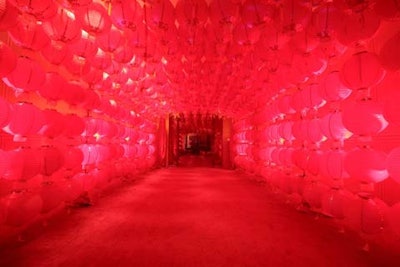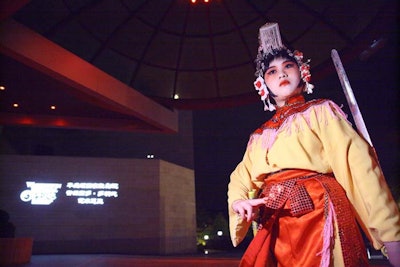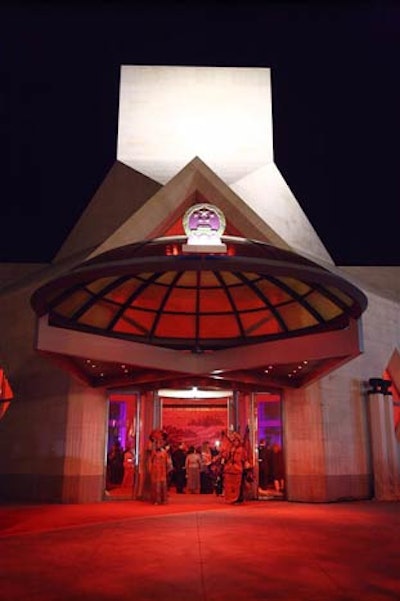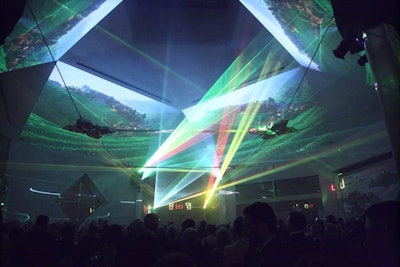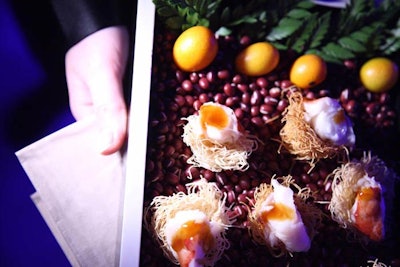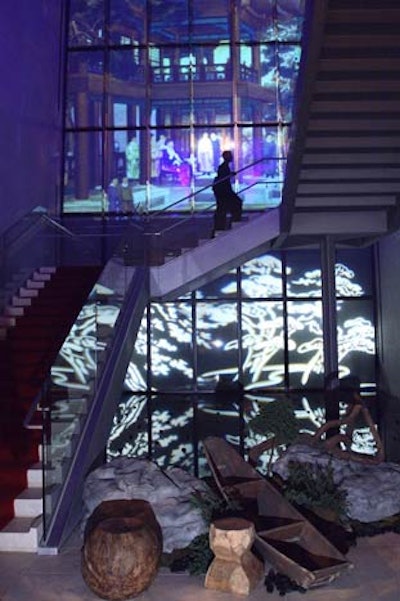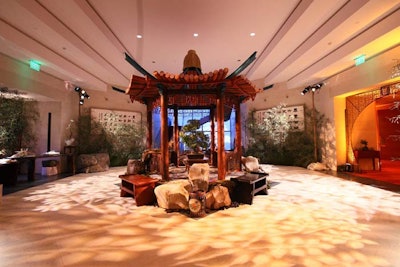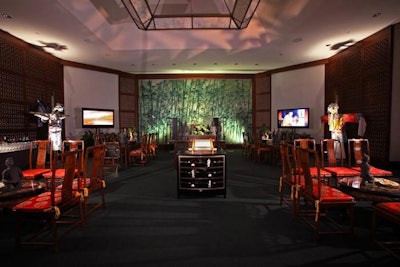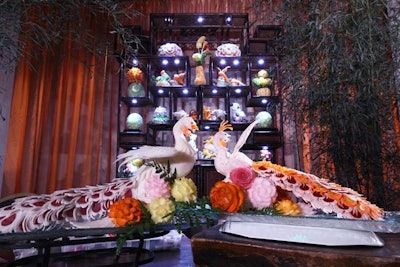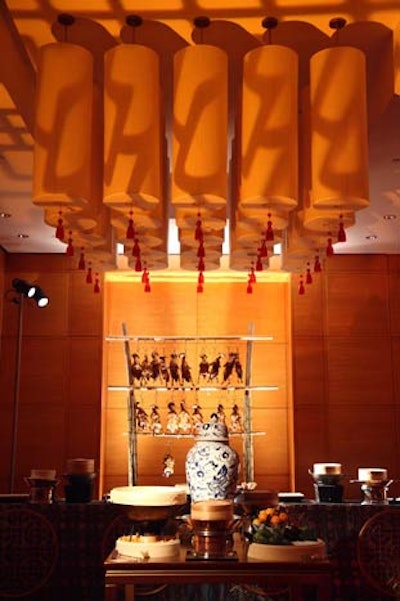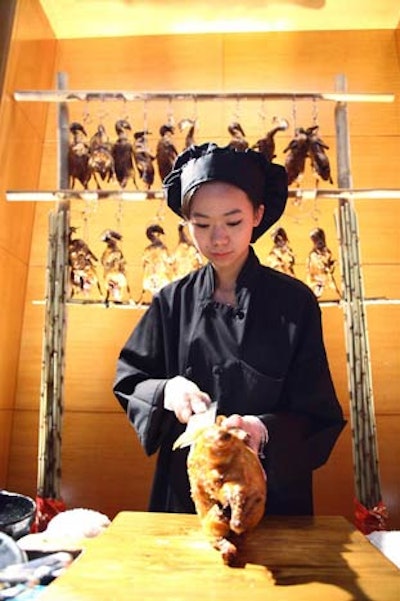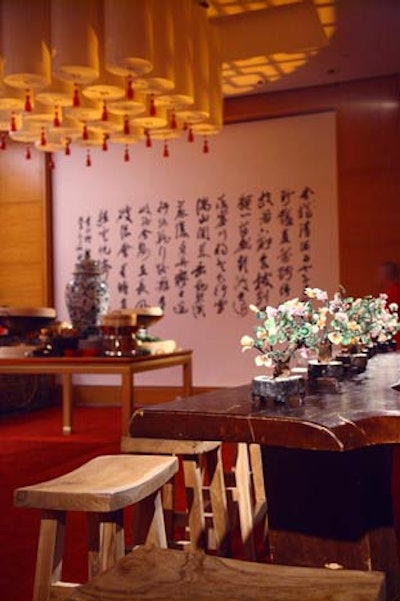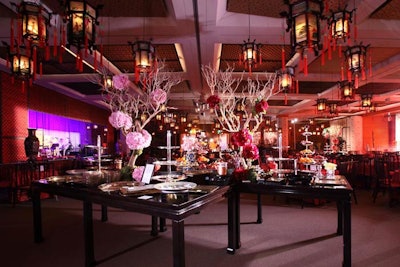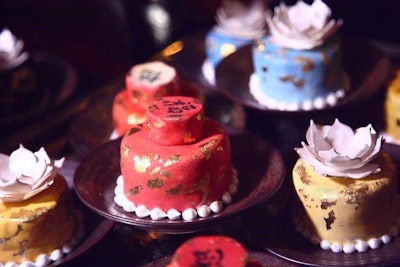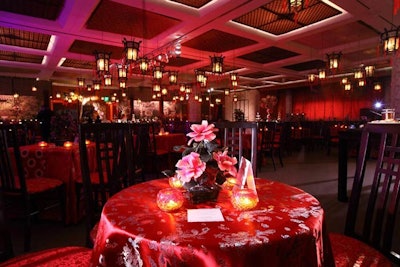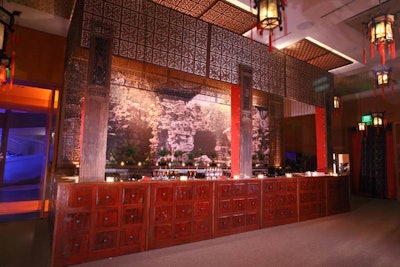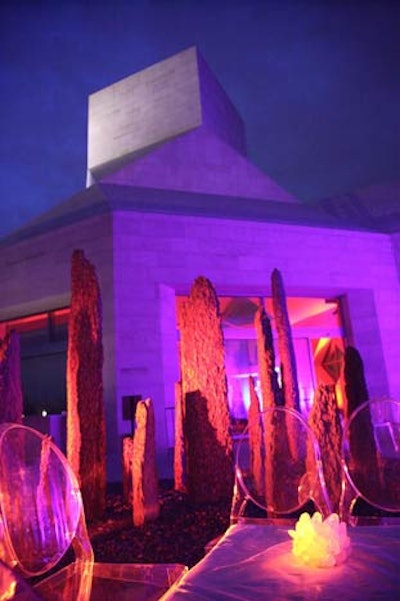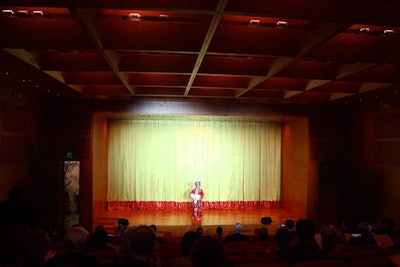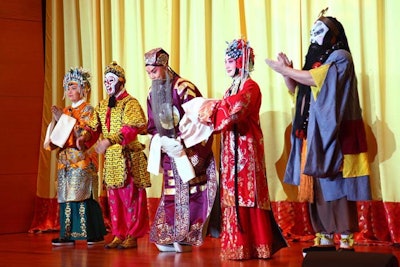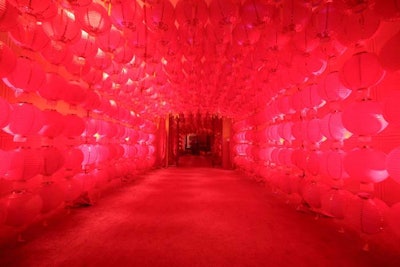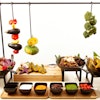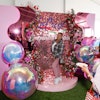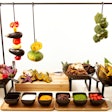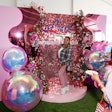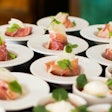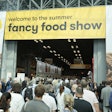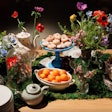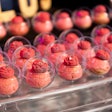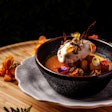On Saturday night, the Washington National Opera hosted its annual Opera Ball fund-raiser, held for the first time ever at the chancery of the Embassy of the People’s Republic of China. In addition to celebrating Chinese culture and performing arts, the ball also paid tribute to tenor Plácido Domingo, who is stepping down in June after 15 years of serving as Washington National Opera general director. With 800 guests, this year’s ball marked the highest attendance in the event’s history, and raised $2.6 million for the opera, compared with last year’s $1.5 million.
Opera Ball chairwoman Susan Lehrman selected the chancery because of opera’s rich history and popularity in China, and because many guests had never had the opportunity to visit the I.M. Pei-designed building, completed in 2008. “This time, the building itself is a wow and something people will want to see in and of itself,” said event producer Sandi Hoffman of Sandi R. Hoffman Special Events. Instead of attempting to decorate the chancery’s modern and spare main level, Hoffman divided the evening in half, staging the beginning of the evening on the main floor as a nod to contemporary China, and then allowing guests downstairs to travel back in time with a lavish display of ancient China on the lower level.
The ball was one of the largest events Ambassador Zhang Yesui has ever hosted at the chancery, and security was more of a concern than at past Opera Balls. “They’ve never really hosted anything like this. It’s so new to them and on such a scale that they’ve never had before,” Hoffman said. The production team brought in nearly all of the decor, including rented furniture from a local dealer specializing in Chinese antiques and reproductions. To ensure that the design was authentically Chinese, Hoffman worked with the embassy, presenting all decor ideas—down to the chopsticks—for review.
At 9:30 p.m., guests began arriving from dinners hosted at 30 different embassies, entering the chancery’s grand foyer, which was accented by a fou drum, last played at the 2008 Olympic Games' opening ceremony in Beijing. Guests drank plum blossom cocktails and snacked on hors d'oeuvres like medjool dates with tea-smoked duck, while watching three different six-minute laser light shows by Image Engineering and Genell Canty.
After the last laser show finished at 10:15, guests walked downstairs to a teahouse-inspired ballroom illuminated with lanterns suspended from the ceiling and dramatic lighting on floral arrangements perched on bare bonsai tree branches. Three dessert bars provided by Occasions Caterers included treats like green-tea petits fours, poached pears, and candied ginger, in addition to a fruit and ice cream station. The dance floor was flanked by two stages for the evening’s entertainment, with Floating Opera With Glenn Pearson playing pop hits, and 6ix Wire Project performing American standards and Chinese folk tunes. Members of the Opera’s Domingo-Cafritz Young Artist Program also sang tributes for Domingo, who addressed the crowd.
Beyond the ballroom, guests had plenty to explore, with performances by the Tianjin Municipal Youth Peking Opera Troupe in the auditorium, fruit carving demonstrations by Los Angeles-based chef Jimmy Zhang outside a replica of a Chinese classical garden, and a tribute room to Domingo including videos of his performances and a scroll for guests to sign a personal greeting. Across the hall in the Tea Room, a calligrapher created personalized scrolls, while Georgetown’s Ching Ching Cha provided a selection of six teas from China’s spring tea season. Meanwhile, in the popular Peking Duck Gallery, 10 chefs carved traditional Peking duck from Duck Chang's in Annandale, using all 260 ducks they brought for the event.
As the evening wound down at 1:30 a.m., guests exited through a tunnel of 999 red Chinese lanterns, which symbolized good fortune, picking up parting gifts including a ball program book, a paperweight with an image of Domingo in the title role of The First Emperor, and a shot of hot tea.
